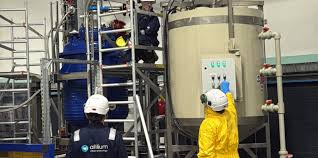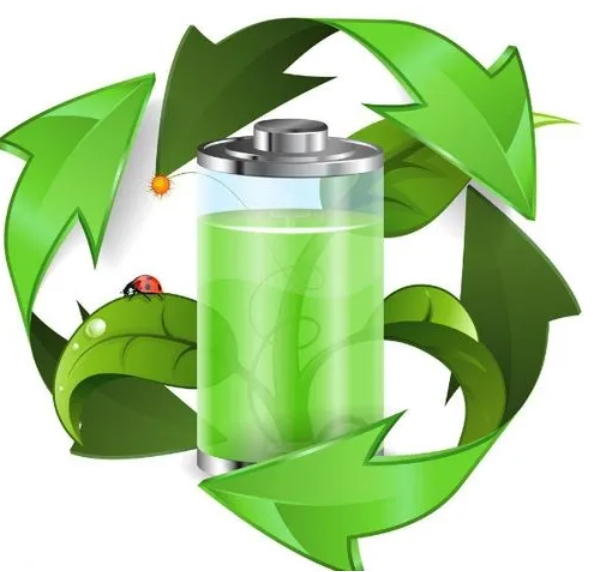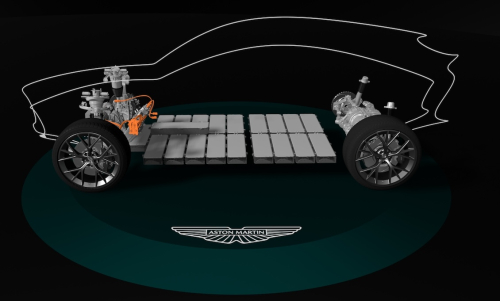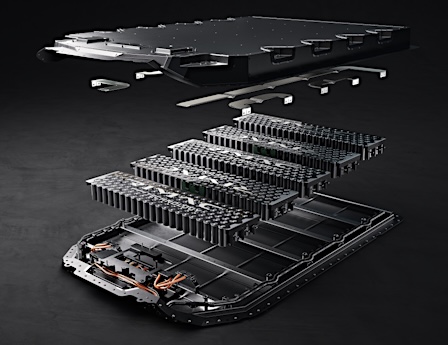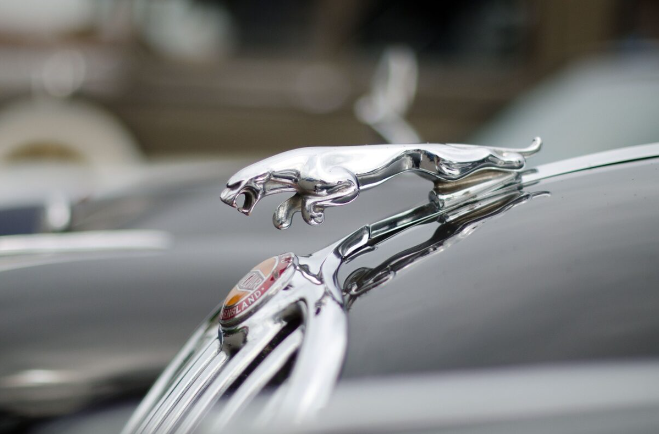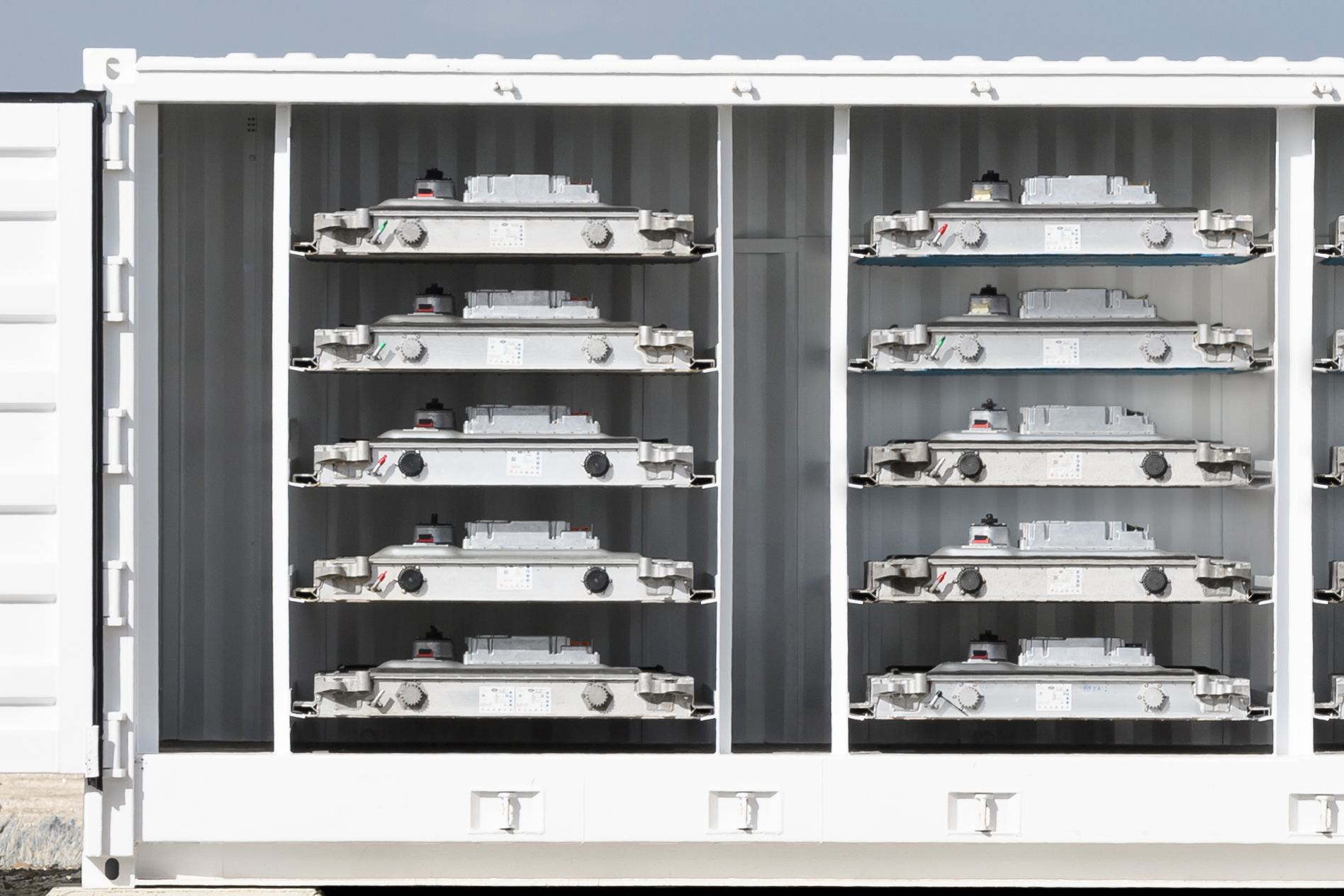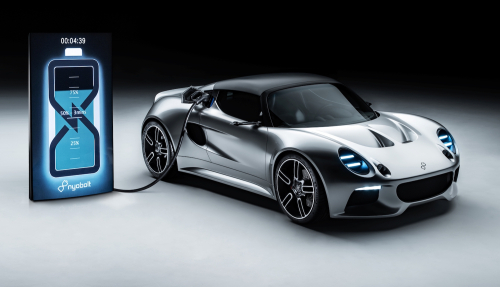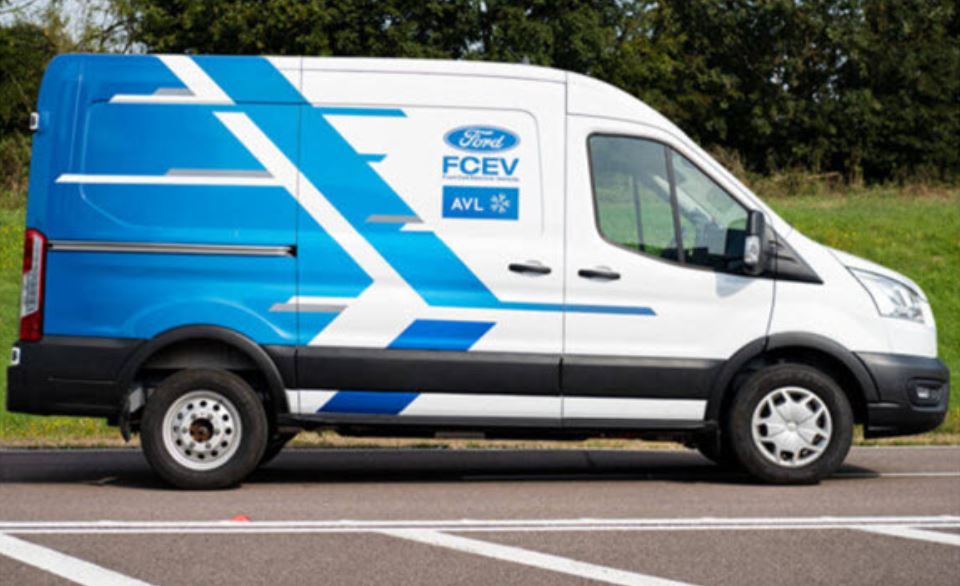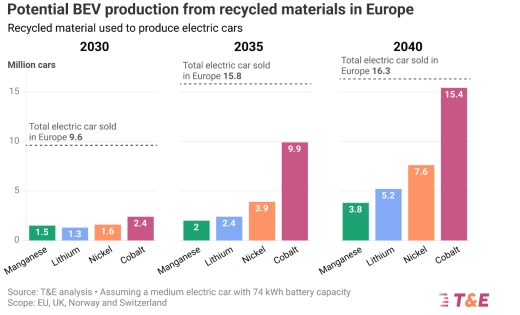
Recycling spent cells and production scrap could provide 14% of the lithium, 16% of the nickel, 17% of the manganese, and a quarter (25%) of the cobalt that Europe will need for electric cars in 2030, the study finds. These could then rise significantly, and the region has the potential to be almost self-sufficient in cobalt for electric cars in 2040.
Recovering battery materials will also replace the need for primary ores. The research finds recycling EV minerals in Europe could avoid the need to build 12 new mines globally by 2040: four lithium, three nickel, four cobalt, and one manganese. This would also reduce the potential negative impacts on water, soil and biodiversity from those mines.
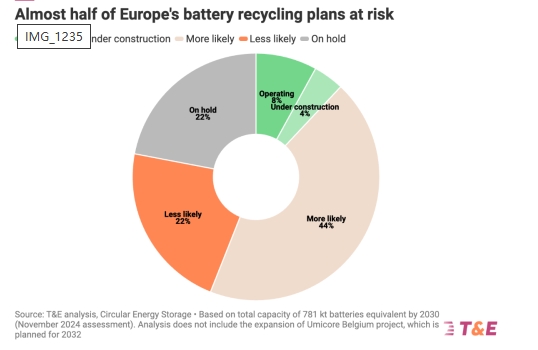
As well as reducing both extraction and imports of raw materials, recycling in Europe could cut the carbon footprint of sourcing lithium by almost a fifth (19%) compared to extracting it in Australia and refining it in China. This is due to Europe’s cleaner electricity grid. But to reap the economic and sustainability benefits, Europe needs to scale up its recycling industry. Almost half of the recycling capacity that has been announced for the region is on hold or uncertain to go ahead, according to the report.
